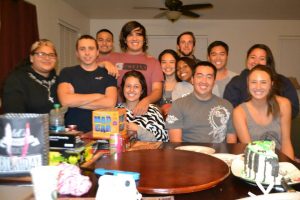The Millennial Myth
December 6, 2016
In many cultures and time periods, younger generations have been criticized. May it be for their morals, their education, their style of clothing or simply the way they hold themselves in society. Yet unlike most countries, the U.S. appears to be having the most difficult time with their younger generations. Millennials are the new verbal punching bag of the century.
According to those who are part of the baby boomer generation or generation X, the greater population of millennials are spoiled brats who believe their emotions hold more validation than hard work. Delicate, narcissistic snowflakes that cannot handle the hard truths of life. Complaining, whining, entitled, lazy and don’t know when to take a joke, millennials are possibly some of the worst things to spawn out of the U.S., or so they say.
Though millennials are supposed to be people having been born between the 1970s through the late 1980s, often times people born in the 1990 are also meshed into this generation. Currently there are 75.4 million millennials in the United States, which makes 31 percent of the population.
One of the major questions going around right now is why do older generations think this way? Why are millennials being attacked so much? Where did it come from?
According to Scott Hess, a professional in hiring and marketing to younger generations, millennials are hated because they’re different and many are jealous of them, he said during a TedX talk. Yet through all the research done, there is no conclusive answer for most of these questions. The biggest question right now is whether anything of what the older generation is saying is actually true?
Unlike the many perceptions gathered by older generations, millennials are the most perceptive, most considerate, least racist and the most socially aware generation. According to the U.S. Chamber of Commerce, millennials are more tolerant of multiple races and ethnicities compared to older generation, and they are more likely to marry someone of a different race. They are also the most racially diverse generation, and biracial people are more likely to identify as other races other than white.

Though they may seem sensitive or not able to understand the harsh realities of the world, statistics prove drastic differences in these statements. A study done by The Huffington Post two years ago, showed that millennials are worried about the state of the world and feel personal responsibility in making a difference. Pew Research declared that millennials are becoming the most educated generation in American history. More than eight of 10 millennials want to make a positive difference in the world rather than getting professional recognition.
Millennials being irresponsible and lazy is also a misconception. According to a joined report published last year by Goldman Sachs and Teen Vogue, millennials are less inclined to have credit-card debt and nearly a third of the U.S. millennial population is less inclined to get married and start a family due to the recent recession. ManpowerGroup found in a recent study that 21 percent of millennials have taken up a second or third job in order to support themselves. Two years ago the Kauffman Foundation has revealed that 54 percent of millennials either have desires to start their own business or have already started. Yet 45 percent believe that a decent paying job is a privilege and not a right.
Though the “millennial” term has a negative connotation, older generations have treated this generation unfairly and created a fatalistic myth for no reason. So my concluding message is, dear millennials, don’t be discouraged by the bitter comments on your age or your generation, you’re doing better than anyone before you has, and you will continue to succeed.




